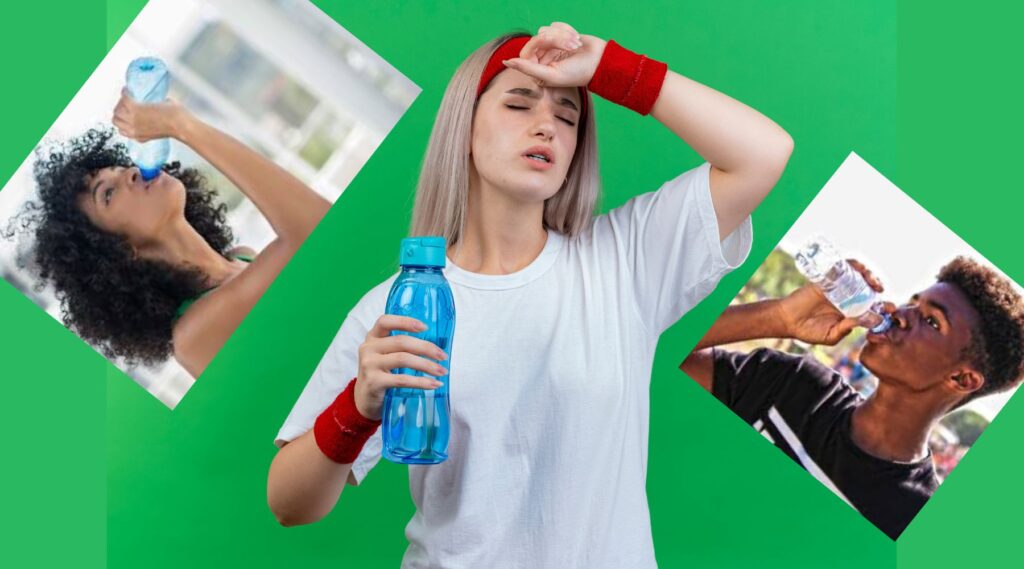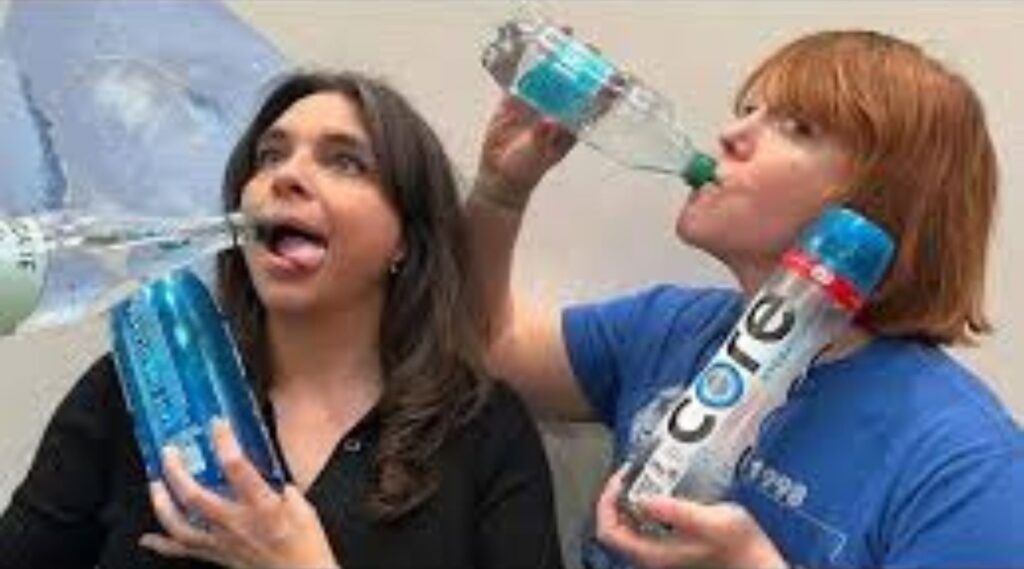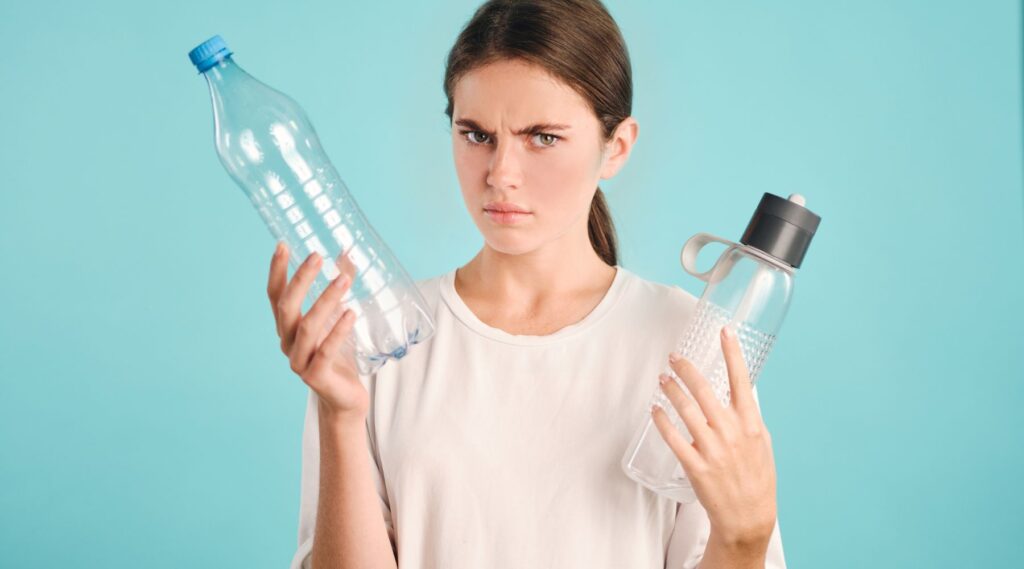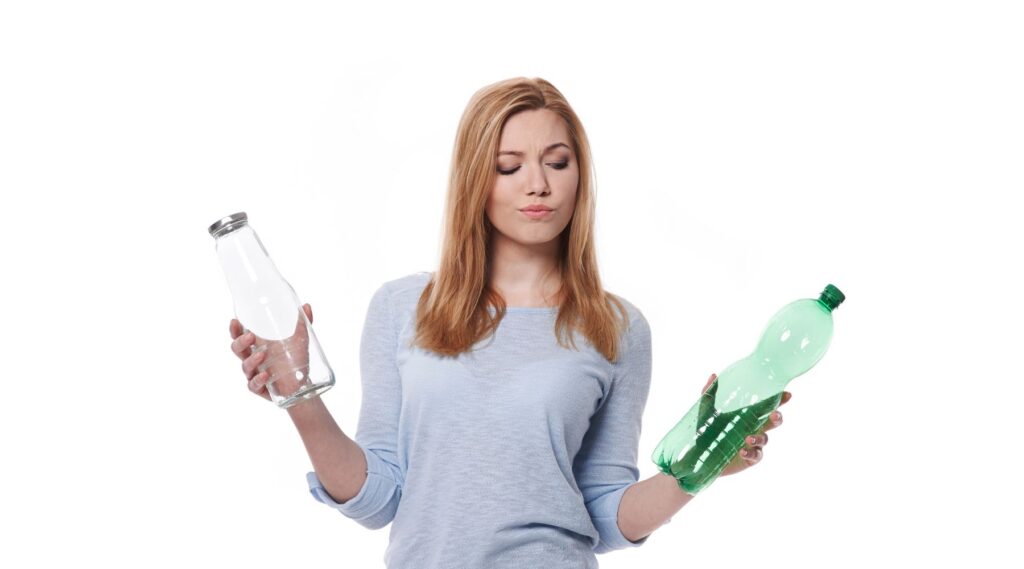Health risks: The paper emphasizes frightening studies showing microplastics in bottled water connected to dementia. These are the main conclusions:


health risks, Studies point to human brains possibly containing as much as seven grams of microplastics, about equivalent to a teaspoon. Microplastics have been discovered to be three to five times more present in persons with dementia than in those without it.
Concerning health effects: The discovery of microplastics in the brain is concerning since it begs issues about possible consequences on human health, particularly with regard to neurodegenerative illnesses like dementia.
Changing from bottled water to tap water could be one of the biggest ways you could cut your expected annual microplastic consumption.


Microplastics from things like processed foods and tea bags Further elements: The study focuses on microplastics present in processed meals, tea bags,, and other food items.
Among other advice to cut microplastics intake, they advise avoiding bottled water, choosing loose-leaf tea instead of tea bags,, and microwaving meals just in certified containers.
The study emphasizes the growing importance of looking at how long-term microplastics in human bodies might exit the systems.
These results highlight the rising worry about plastic pollution and its possible connections to major medical conditions,, including dementia.


Which particular kinds of microplastics present themselves in bottled water?
Health risks:
Health risks: Without naming specifically which sorts of microplastics are present in bottled water in particular, the report offers studies on what kinds of ones are generally found in it. Still, reference to the most often occurring form of microplastics in human brains is the fact that polyethylene, the most often utilized component of the plastics used in consumer products, including bottled water, is present in human brains.


Health risks: Generally speaking, microplastics can consist of many polymers,, including:
• Polyethylene, or PE: Often found in plastic bottles.
• Often found in food containers and bottle closures, polypropylene (PP)
• PET, polyethylene terephthalate: Mostly used in beverage containers.


Health risks: These plastics break down into smaller bits, which fuels microplastic pollution of water supplies. More study is required to pinpoint the particular kinds and amounts of microplastics in bottled water.
Health risks: Research on microplastics in bottled water has looked at what?


Health risks: Microplastics in bottled water have been found to exist,, and their distribution has been established by a lot of studies. The most fascinating case studies are those following here:


Health risks: Orb Media Research 2018: From many brands all across the world, microplastics were found in 93% of bottled water samples analyzed. The most often used among the ones listed are polypropylene (PP) and polyethylene terephthalate (PET). Environment Chocolate and other sweets lead the wave of big corporations causing microplastic pollution in their treatment of the topic of concern.


Health risks: Brown, unlike others, supplied fresh data by presenting the three forms of microplastics polyethylene (PE), polystyrene (PS), and PET. Said to be possibly the ethical microplastics entrance point in people is bottled water. Nature Food (2021): Different polymer kinds were also recorded while a research team examined the microplastics in bottled water.
They also said that there is a health danger as bottled water’s microplastics are more than in tap water. Food and Chemical Toxicology (2022) aimed to find microplastics in several foods and beverages as well as in bottled water, where several types of plastics were found and their link with health examined. Different polymer kinds produce variations in the range of microplastics, therefore distorting the water. Thus, it turns into the main component of microplastic sources worldwide. More study on how these microplastics affect human health ought to be done.
Could you link these studies?
I can help you locate this research even if I cannot explore the internet to offer direct links:
1. Orb Media research (2018): Your choice search engine should get “Orb Media bottled water microplastics study.” Look for pieces compiling the results.
2. Environmental Science and Technology (2020): Search for “microplastics in bottled water or visit the journal’s website, Environmental Science and Technology 2020, “to locate the particular article.”
3. Look for “Nature Food Microplastics Bottled Water 2021” to find the journal article on nature food for 2021.
4. Food and Chemical Toxicology (2022): Search for “microplastics in beverages. Food and Chemical Toxicology 2022” straight on the journal website or in scholarly databases like Google Scholars.
Finding the research will depend on using these keywords in a database such as Google Scholar ResearchGate, or the particular journal website.
I came upon the Orb Media research, but it’s behind a paywall; any other sources?
Should the Orb Media study be behind a paywall, you could want to investigate the following substitutes for like studies:
Search Google Scholar from Google Scholar: Sometimes authors release free-to-read preprints or versions of their work.
Research articles can be distributed through ResearchGate. Look for the study there; if it isn’t available, ask the authors right away for a copy.
Should the study relate to environmental or health science, it may be easily available on PubMed Central, therefore granting free access to a vast array of papers.
Should you have access to a university library, they will be able to find the paper and usually cover journal subscriptions.
Engage writers: Finally, you might send the pertinent study author an email. Most research scientists, when requested, will share their results.
For additional study on microplastics in bottled water, search academic databases such as Scopus or Web of Science (“microplastics bottled water study”).
These tools should enable you to locate easily available studies on microplastics in bottled water.

